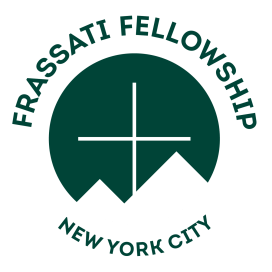Hey Frassatians, I don’t have a lot of time for a reflection today, so I’m going to send out a draft I had written for two weeks ago, May 9th. Hop in your time machine and I hope you enjoy!
—
Then Paul stood up at the Areopagus and said:
“You Athenians, I see that in every respect
you are very religious.
For as I walked around looking carefully at your shrines,
I even discovered an altar inscribed, ‘To an Unknown God.’
What therefore you unknowingly worship, I proclaim to you.
—Acts 17:22-23
In terms of theatrics, today’s first reading is top-notch. St. Paul delivers a Spirit-infused, moving monologue about the Lord’s hidden hand behind all the Athenians hold dear, from creation to power over life and death. How do the Athenians respond? The reaction is…mixed, quite literally. Some scoff, others humorously defer (“Can you just tell us about overcoming death some other time, Paul? Pretty please? We’re really busy right now”), and others immediately follow St. Paul as disciples of Christ.
With the benefit of hindsight, it’s always easy to hear a reading like this and say, “Well, there’s their problem right there! They didn’t listen to Paul about Jesus!” Groundbreaking conclusion, that.
Anytime we hear about the crowd’s reaction in Scriptures, though, we’re being called to examine our own hearts. We’re asked to put ourselves in their place. If we had just heard Paul’s rousing proclamation of the Gospel, how would we react?
I first read today’s reading from Acts with a smugness that (at least in my case) comes in no small part from my identity as a cradle Catholic: while friends around me were dropping like flies from the Church and other churches were holding newer, hipper services, I took on the identity of martyr, and not the good kind. I was special. I could see something that others were missing. If only they knew the God that I knew. If only they knew how hard it was to stay Catholic while all of that was happening around me…
But after another read-through, I came to the truth of the matter that God wanted me to hear: That altar “to an Unknown God” is my own.
In a few recent reflections, I’ve touched on a theme pervasive in today’s faith climate: “I’m spiritual, not religious”. St. Paul’s words brought out the parts of me that had tacitly incorporate that mentality into my own faith. In the face of a political and social environment that discourages firm, immovable beliefs, tolerance is a logical outcome. Most people in NYC with whom I discussed my faith (that were not Catholic) had a similar response, sometimes stated and sometimes implied: “That’s great! ….for you.” Translation: “Don’t confront me or make me confront my beliefs, and I will be happy to politely hear about yours.” Sounds a lot like an altar to an Unknown God, huh?
And yet so often I felt this attitude of polite, partial tolerance was actually a reasonable and responsible approach. My own version of the above interaction went something like this: “We can’t possibly grasp the full mystery of God, so I’m going to leave my options open. I don’t want to push them away with firm truths.” I wasn’t questioning my faith, but I wasn’t willing to close the door on other spiritualities, either. I couldn’t bring myself to tell people that I disagree with their openmindedness. I, after having used my Catholic identity for years as evidence that I had a better faith life than so many of my peers, was unwilling to put my money where my mouth was, so to speak, and actually tell my non-Catholic friends why I believe what I believe and why I think it is the one and only Truth. I claim it with every Creed I pray, so why couldn’t I proclaim it?
When I first read Paul’s words, my reaction was something along the lines of, “Yeah, take that, Athenians!”
Upon further reflection, I realize that Paul was exhorting ME. I humbly thanked God for the lesson.
Pray with Scripture. It does things to your heart.
